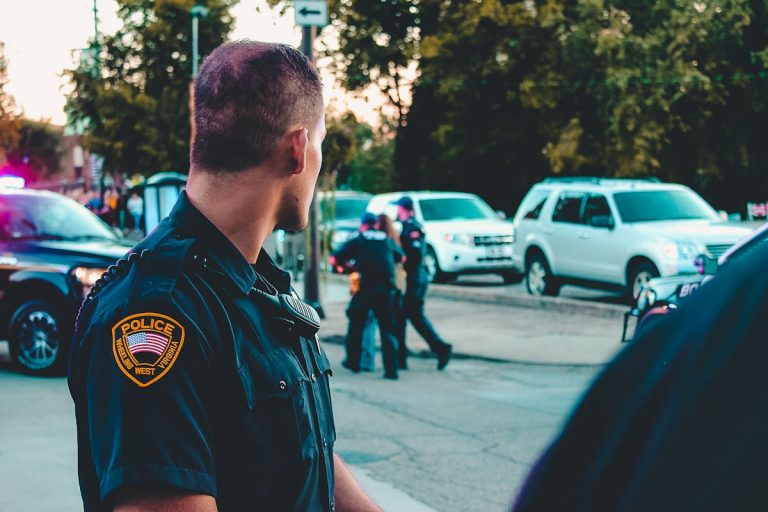The disciplinary process for on-campus crime is a critical component of maintaining a safe and secure learning environment for students, staff, and faculty. It is a systematic procedure involving reporting, investigating, and adjudicating incidents, with consequences that vary depending on the severity of the violation. However, the complexity of this process raises questions about fairness, efficiency, and effectiveness. How does a university guarantee a balanced approach that respects the rights of the accused while maintaining campus safety? This topic deserves our attention as we explore the intricacies of disciplinary action for on-campus crime.
Understanding On-Campus Crime
In the domain of higher education, grasping the concept of on-campus crime is a fundamental necessity. It is essential both for the safety of students and staff, and for the overall functioning of the institution. The term ‘on-campus crime’ broadly encompasses any illegal activities that occur within the geographical boundaries of a university or college campus. This can range from minor infractions like petty theft or vandalism, to serious offenses like assault, sexual harassment, or drug distribution.
Campus awareness plays a significant role in understanding and addressing on-campus crime. It involves educating members of the institution about the prevalence and types of crimes, along with the potential risks associated with them. This awareness is not just about knowing what is happening around the campus, but also understanding the policies, procedures, and consequences related to such crimes.
Crime prevention, on the other hand, is a proactive approach to reduce crime occurrences within the campus. The strategies for crime prevention can be multifaceted, including implementation of security measures like surveillance cameras, regular patrols, and well-lit pathways. Additionally, cultivating a culture of responsibility and respect among students and staff supports a safe and secure campus environment.
Reporting Procedures for Incidents
When an incident of on-campus crime occurs, it is vital to have a clear and effective reporting procedure in place. This procedure often begins with the immediate reporting of the incident by the victim or a witness. Timely reporting is important, as it enables the appropriate authorities to take necessary action promptly and provides the best chance for effectively responding to the incident.
The reporting procedure should be straightforward and accessible to all. It should cover not only how to report incidents but also what information to include in the report. Clear incident documentation is key. It includes the details of the incident, such as the date, time, location, people involved, and a description of what happened. This documentation helps establish a factual account of the incident that can be used in subsequent investigations and disciplinary proceedings.
In addition to reporting procedures, colleges and universities must have mechanisms for victim support. This support can range from providing emotional assistance to helping the victim navigate through the administrative and legal processes that follow the reporting of an incident. Ultimately, the goal of these procedures is to guarantee a safe and respectful campus environment for all.
Role of Campus Security
Campus security plays an integral role in maintaining safety and preventing crime within the confines of educational institutions. The primary duty of these security personnel is to guarantee the well-being of students, staff, and visitors while upholding the highest standards of campus safety.
Security officers are responsible for enforcing campus rules and policies, responding to various incidents, and intervening in situations that pose potential threats. They are often the first line of response during emergencies, providing immediate assistance and liaising with local law enforcement agencies, if necessary.
To fulfill these important tasks, security staff undergo rigorous security training programs that equip them with the skills to manage a wide range of situations. Their training includes conflict resolution, emergency response, crime prevention, and the use of security technology. They also learn about the legal aspects of their role to guarantee they act within the law while performing their duties.

Student Conduct Code Violations
Breaching the Student Conduct Code is a serious offense that can have significant repercussions for the individual involved. This code is designed to preserve academic integrity, foster a safe learning environment, and maintain order within the campus community. Violations may range from minor transgressions to severe misconduct, each carrying a corresponding penalty.
Academic integrity is a cornerstone of every educational institution. It is a commitment to uphold ethical standards in all academic work. Violations of academic integrity include plagiarism, cheating, fabrication of data, or unauthorized collaboration. These offenses, whether committed intentionally or accidentally, can lead to disciplinary actions, such as a failing grade, suspension, or even expulsion.
Housing violations, on the other hand, involve breaches of rules and regulations governing residential life on campus. These may include unauthorized room changes, possession of banned items, or disruptive behavior. Penalties for such violations can range from a warning to eviction from campus housing.
Each institution typically has a detailed Student Conduct Code. Familiarity and compliance with this code are essential for a successful and trouble-free academic journey. Understanding the potential consequences of code violations can deter students from engaging in actions that undermine the institution’s values and norms.
Institutional Disciplinary Proceedings
In addressing violations of the Student Conduct Code, universities employ a structured system of institutional disciplinary proceedings. These proceedings, grounded in institutional policies, are designed to guarantee both the safety of the campus community and the protection of student rights.
The procedures usually commence with an investigation, conducted by designated university officials. Should sufficient evidence be found, the case will be referred to a disciplinary committee. This committee, often comprised of faculty, staff, and student representatives, will hear the case and make a fair judgement based on the facts presented.
The accused student is informed about the alleged violation and given an opportunity to respond. Throughout the process, the student has the right to be accompanied by an advisor, and to present witnesses and evidence. If found guilty, sanctions range from warnings and probation to suspension or expulsion, depending on the severity of the violation.
Institutional disciplinary proceedings are separate from any criminal charges that may arise from the same incident. Universities are committed to maintaining a safe and respectful environment, and these proceedings play a vital role in that mission.
Legal Consequences of On-Campus Crime
While the institutional disciplinary proceedings play a significant role in maintaining campus safety, they exist alongside of, and do not replace, the potential legal consequences of on-campus crime.
When a crime is committed on campus, the violator is not only subject to the rules and regulations of the institution, but also to the local, state, and federal laws. Criminal liability applies irrespective of the location of the crime, meaning on-campus crime can result in serious legal consequences, including fines, probation, or even imprisonment.
Campus regulations aim to uphold an environment conducive to education and personal growth. However, when these are breached, the transgressor faces institutional actions such as warnings, suspension, or expulsion. Simultaneously, if the act constitutes a criminal offense, the individual may be prosecuted in a court of law. This dual system underscores the seriousness of on-campus crime, stressing the importance of adhering to both institutional rules and the law.
Understanding the legal consequences of on-campus crime, hence, is vital for all members of the academic community. The gravity of criminal liability serves as a deterrent, reinforcing the significance of maintaining a safe and respectful campus environment.
Preventative Measures for Campus Safety
Given the seriousness of on-campus crime and its legal implications, a concerted effort must be taken to prevent such incidents from occurring in the first place. This necessitates the implementation of robust preventative measures that prioritize campus safety.
The cornerstone of effective prevention is community awareness. Educational programs and campaigns should be established, fostering an informed and vigilant student body. Campus community members need to be aware of the potential risks, understand the importance of reporting suspicious activities, and know how to respond to emergencies.
Moreover, campuses should initiate safety initiatives that include enhanced security measures. This could mean increased lighting in poorly lit areas, installation of additional surveillance cameras, and regular security patrols. The presence of emergency call boxes throughout the campus can also provide an added layer of protection.
Further, institutions should consider adopting mobile safety apps. These apps can provide real-time information about potential threats and safety-related incidents, allowing for prompt response.
Lastly, regular reviews and updates of safety protocols are critical, ensuring that they remain effective in an ever-evolving threat landscape. Through these extensive preventative measures, campuses can become safer, more secure environments for all.
Frequently Asked Questions
What Are the Rights of a Student Accused of an On-Campus Crime?
A student accused of an on-campus crime has certain rights, including the right to due process. This includes being informed of the charges, a fair hearing, and the opportunity to present a defense.
How Do Colleges Handle Anonymous Crime Reporting?
Colleges encourage anonymous crime reporting as a strategy for crime prevention. They typically offer secure online platforms or hotline numbers where individuals can report crimes or suspicious activities without fear of personal identification or reprisal.
What Is the Role of Parents in the Disciplinary Process?
Parents’ role in the disciplinary process primarily involves open communication and support. Their involvement can facilitate understanding of the process, consequences, and facilitate corrective actions. Additionally, they can serve as liaisons between the institution and the student.
Can a Student Appeal the Decisions Made in Institutional Disciplinary Proceedings?
Yes, students can appeal decisions made in institutional disciplinary proceedings. The appeal process gives students the opportunity to challenge disciplinary outcomes if they believe the decision was unfair or the process was improperly conducted.
Does the School Provide Any Counseling or Support for Victims of On-Campus Crime?
Yes, most educational institutions provide victim support for on-campus crime, including counseling services. These services aim to aid recovery, offer emotional support, and provide resources for further assistance if needed.





